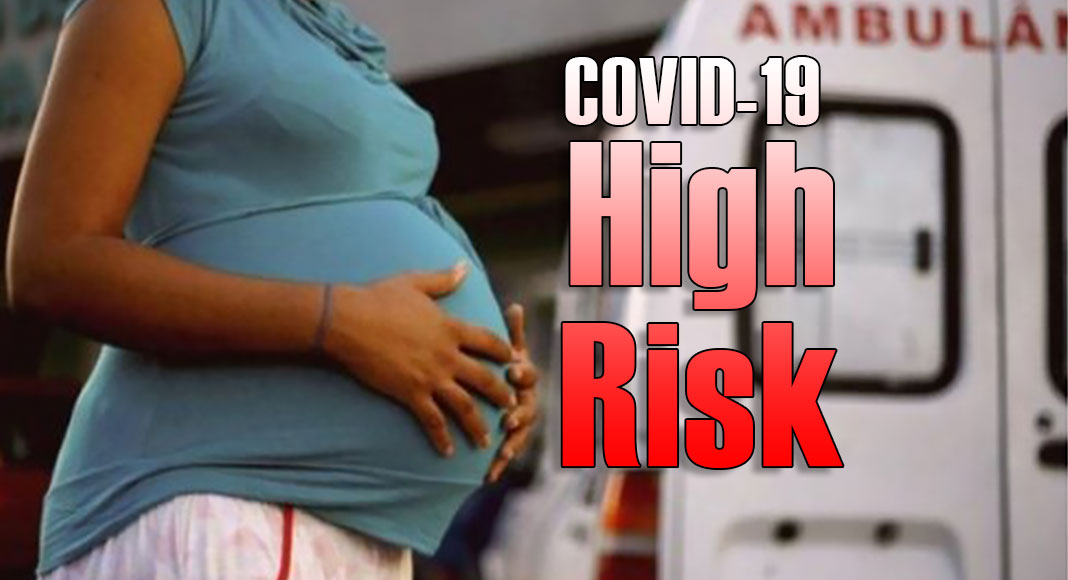
Mega Doctor News
by Fundação de Amparo à Pesquisa do Estado de São Paulo
Newswise — A review of the scientific literature published by Brazilian researchers shows that pregnant women infected by the novel coronavirus run a higher risk of developing pre-eclampsia, a pregnancy complication characterized by persistent high blood pressure, usually in the second half of pregnancy or shortly after delivery. The disorder can cause serious harm to mother and baby. An article with the findings of the review is published in the journal Clinical Science.
The authors analyzed a large set of published data and concluded that the presence of SARS-CoV-2 in the maternal organism can cause alterations in levels of angiotensin-converting enzyme 2 (ACE2), the protein to which the virus binds in order to invade cells, and thereby impair the functioning of systems that depend on ACE2 to regulate blood pressure. Besides serving as a receptor for the virus, ACE2 plays a key role in establishing blood flow in the placenta and in the cardiovascular adaptations that occur during pregnancy.
“Based on the findings of studies conducted to date on infection by SARS-CoV-2 in pregnant women and the role of ACE2 in the placenta, it can be concluded that pregnant women run a higher risk of developing the severe form of COVID-19 than non-pregnant women. Mortality is higher among pregnant women with the disease, and Brazil has one of the world’s highest rates of mortality from COVID-19 among pregnant women. Furthermore, pregnant women with the disease are more susceptible to pre-eclampsia and premature delivery,” said Nayara Azinheira Nobrega Cruz, first author of the article. The study was part of her PhD research, conducted at the Federal University of São Paulo’s Medical School (EPM-UNIFESP) with a scholarship from FAPESP.
Cruz is currently a research intern at the North Montreal Island Integrated University Health and Social Services Center (CIUSSS-NIM) in Canada, also with a scholarship from FAPESP.
“ACE2 plays a very important adaptive role in the maternal and fetal circulatory system, and in placentation. However, because it’s also a receptor for SARS-CoV-2, it increases risk to the placenta in pregnant patients with COVID-19, because the organ becomes a target for the virus, alongside the lungs, kidneys and heart. Our review showed that the response varies greatly from one patient to another, and manifestations take different forms,” Mariane Bertagnolli, principal investigator for the study, told. Bertagnolli is a Brazilian-born researcher at CIUSSS-NIM and a professor at McGill University, also in Canada.
The study was part of a project supported by FAPESP and led by Dulce Elena Casarini, a professor at EPM-UNIFESP and thesis advisor for Cruz during her PhD research.
Vertical transmission
With the global spread of the novel coronavirus, evidence soon built up that it could be vertically transmitted from mother to fetus. In a study by researchers in Taiwan, published in February 2021, 8.8% of 105 newborns tested positive for SARS-CoV-2.
In addition, 25% of babies born to mothers who had confirmed COVID-19 manifested fever, accelerated breathing, shortness of breath, and vomiting. The researchers were unable to ascertain whether the symptoms resulted from premature delivery due to maternal COVID-19 or were directly caused by the disease.
Other research groups have found viral particles in different parts of the placenta, which in mothers with the disease shows signs of inflammation and lesions consistent with vascular malperfusion (impaired blood flow in veins and arteries). Immune cells probably infected by the virus have also been found in the placenta.
Apart from the fact that ACE2, the receptor for SARS-CoV-2, is abundant in the placenta, the researchers found that the incidence of severe COVID-19 among pregnant women could be due to inhibition of the enzyme’s action by the viral infection. Because the virus uses it to invade cells, infection probably reduces the availability of ACE2 and its capacity to protect the organism during pregnancy.
“A deficit of ACE2 can cause an imbalance in the renin-angiotensin system and an increase in the peptide angiotensin 2, a vasoconstrictor, driving up the mother’s blood pressure and leading to pre-eclampsia,” said Casarini, a co-author of the study.
The researchers stressed that further research is needed to determine with greater precision why pregnant women are more susceptible to COVID-19, and the role played by the disease in pre-eclampsia. They are collecting samples of placenta from women infected by the virus in order to perform a series of experiments to find out what is really happening.
Besides pre-eclampsia, they are interested in the role of infection by the novel coronavirus in placental inflammation and vascularization. “We know endothelial cells [which form blood vessels] in general are affected by SARS-CoV-2. Given their role in promoting placental vascularization and nourishing placental tissue, it’s possible that infection by the virus causes placental and fetal malperfusion,” Bertagnolli said. “If so, this could restrict fetal growth. Even in the absence of pre-eclampsia, which is a more severe manifestation, there may be less visible alterations.”









